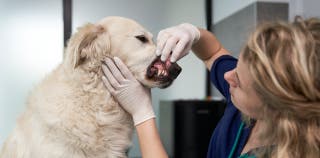- To ensure your cat lives a long, healthy life, it’s important to take them to the vet regularly for checkups.
- How often you should take them to the vet depends on their age. This is because cats of different ages have different medical needs.
- Healthy adult cats should visit the vet once per year. Kittens and seniors require more frequent vet appointments.
- If your cat has a chronic health condition, they may need medical care more often.
- To help cover the cost of routine vet care, we recommend purchasing a pet insurance wellness plan. Try using an online comparison tool to find the right policy for you and your cat.
On This Page
- Key takeaways
- How often should I take my cat to the vet?
- Benefits of regular vet visits for your cat
- When to take your cat to the vet immediately
- What happens if my cat hasn’t been to the vet in years?
- What should I do if my cat doesn’t like going to the vet?
- Does pet insurance cover vet checkups?
- How to find the right vet for your cat
- FAQ: taking your cat to the vet
- Our readers also like
- Related topics
On This Page
- Key takeaways
- How often should I take my cat to the vet?
- Benefits of regular vet visits for your cat
- When to take your cat to the vet immediately
- What happens if my cat hasn’t been to the vet in years?
- What should I do if my cat doesn’t like going to the vet?
- Does pet insurance cover vet checkups?
- How to find the right vet for your cat
- FAQ: taking your cat to the vet
- Our readers also like
- Related topics
How Often Do You Take a Cat to the Vet? It Might Be Time to Make an Appointment
Loving and owning a cat involves prioritizing their health and wellness.
Taking care of your cat involves regular vet visits, but how often you go depends on factors like your cat’s age, health history, and daily habits.
So whether you’ve just brought home your very first kitten or have been or have been nurturing cats for years, we’re here to assist you in making informed decisions when it comes to your cat’s veterinary care.
In this article, we’ll explore:
- How often you should take your cat to the vet
- The benefits of regular veterinary care
- Symptoms that may require immediate medical attention
- The consequences of not taking your cat to the vet
- Tips for making vet visits easier
- Guidelines for choosing the right veterinarian
With this understanding, you’ll be able to prioritize your cat’s well-being, from their earliest days to their golden years.
Our top picks for the best how often do you take a cat to the vet?
How often should I take my cat to the vet?
Depending on your cat’s life stage, you may have to visit the vet once a month or just for annual checkups.
Care needs change with age, and the frequency of vet visits should reflect your cat’s life stage.
However, recommendations for care frequency are only suggestions, and different pets have different needs. For example, a pet with a chronic health condition may need medical care more often, and an outdoor cat may have a higher risk of injury than one that’s always indoors.
How often should I take my kitten to the vet?
A kitten should first be examined a few days after birth. The next visit is due at about 8 weeks of age, the time when kittens are first available for adoption at many shelters. This appointment usually includes a full exam and several kitten vaccinations.
Kittens should then be examined every 1 to 2 months or when they’re due for a vaccine. Neutering may also be done between the ages of 4 and 6 months.
At 7 months, your pet is considered a junior. To address the changing dietary needs and behavioral concerns this age brings, schedule 6-month checkups. Visits may include initial vaccinations, dental screenings, and checks for parasites.
How often should I take my adult cats to the vet?
Adulthood begins in the third year of life, and healthy adult cats typically need annual checkups. During visits, your pet may receive vaccine boosters, such as FVRCP and FHV-1, which protect against common feline diseases. Mature adult cats between the ages of 7 and 10 may also have blood tests done to detect potential conditions.
How often should I take my senior cat to the vet?
Aging pets have a greater risk of developing illnesses and chronic medical conditions, so senior cats aged 11 and older should be examined every 6 months. At this time, blood or urine samples may be collected to screen for age-related conditions.
 Join the over 2,438,795+ insured cats & dogs across the US
Compare pet insurance plans & prices from top providers in minutes
COMPARE QUOTES
Join the over 2,438,795+ insured cats & dogs across the US
Compare pet insurance plans & prices from top providers in minutes
COMPARE QUOTES

Benefits of regular vet visits for your cat
Regular checkups are crucial to ensure your cat has a long, healthy life.
Routine exams provide valuable information about your companion’s health. Cats are great at hiding pain and sickness, but a thorough check of an animal’s body, coat and teeth can help catch diseases early so they can be treated quickly.
You may also benefit by having your vet:
- Prescribe parasite-prevention medication
- Recommend dental care
- Assess grooming needs
- Perform microchipping services
- Suggest diet and exercise changes
- Help with behavior management concerns
A good practitioner will also take time to answer your questions and address any concerns.
When to take your cat to the vet immediately
Sudden ailments or injuries may require prompt attention at a veterinary center or emergency vet.
The following signs and symptoms are red flags that you may need to seek immediate veterinary care:
- Open wounds
- Difficulty breathing
- Sudden collapse
- Loss of consciousness
- Seizures
- Bleeding from the ears, nose or mouth
- Extreme pain
Additionally, if your companion suffers a trauma, such as being hit by a car, immediate medical attention may be needed.
Warning signs can vary, so it’s crucial to know your cat. Radical changes in behavior almost always signal a need for immediate care. If you’re in doubt, call your veterinary clinic for advice.
What happens if my cat hasn’t been to the vet in years?
If your cat hasn’t been examined in years, there could be negative consequences for its health.
People often fail to make annual veterinary appointments. Exams can be costly and time-consuming, and corralling your feline companion into a cat carrier can be stressful. However, skipping wellness exams can have consequences.
Some consequences of not taking your cat to the vet include:
- Undetected conditions
- Dental problems
- Parasites
- Disease progression
- Medical emergencies
- Shortened life spans
In some areas, failing to provide veterinary care may even be considered neglect and may be punishable under animal cruelty laws.
What should I do if my cat doesn’t like going to the vet?
Cats and other animals rarely like visiting the vet, but there are a few things you can do to make the trip easier.
Here’s how you can make vet visits less stressful for your favorite feline:
- Choose a clinic that specializes in small pets, so there won’t be barking dogs.
- Request the earliest appointment to reduce wait times.
- Let your pet get used to the carrier beforehand.
- Stay calm and speak softly.
- Use pheromone sprays or calming supplements.
- Ask your practitioner to prescribe antianxiety medication.
- Bring plenty of treats and share them liberally.
If your companion simply can’t tolerate car rides, you might benefit from mobile services. These rolling clinics bring comprehensive veterinary care to you—or ask your vet if they make house calls.
Does pet insurance cover vet checkups?
Pet insurance plans typically don’t cover vet checkups.
Most head-to-tail pet insurance plans only provide coverage for accidents and illnesses.
However, wellness plans are designed to cover routine care. Some accident-and-illness plans may also offer add-ons that cover routine care, such as vaccinations and teeth cleanings.
These guides can help you decide which policy is best for your cat:
Our top picks for pet insurance with wellness add-ons
Lemonade Pet Insurance

MetLife Pet Insurance

Pets Best Insurance

How to find the right vet for your cat
Finding the right veterinarian can take patience and research, but it’s time well spent.
Your veterinarian plays an important role in keeping your pet healthy, so it’s essential to choose someone you can trust.
These simple tips can help you make a great choice:
Ask for recommendations.
Other pet owners may have suggestions (or warnings), so ask friends and family.
Look at qualifications.
The practitioner you choose should be licensed, credentialed and experienced.
Take a tour.
The facility should be clean and have up-to-date technology.
Schedule a call.
A good practitioner should put you at ease, so make sure they have a great communication style.
Consider costs.
If money is tight, look for low-cost options, such as local animal welfare associations. Pet stores may also sponsor clinics that offer inexpensive vaccinations, flea-and-tick drugs and microchipping services.
 Join the over 2,438,795+ insured cats & dogs across the US
Compare pet insurance plans & prices from top providers in minutes
COMPARE QUOTES
Join the over 2,438,795+ insured cats & dogs across the US
Compare pet insurance plans & prices from top providers in minutes
COMPARE QUOTES

FAQ: taking your cat to the vet
Why is it important to take my cat to the vet?
Cats often hide sickness and pain, but veterinary visits can help detect health issues early. Besides an exam, your companion may receive vaccinations that help prevent life-threatening diseases.
How often should cats go to the vet?
Your cat’s needs change as it ages. Kittens should be seen every 1 to 2 months, while healthy adult cats require annual visits. Older cats should be checked every 6 months. Sick or injured cats may require immediate attention.
What are the risks of not taking my cat to the vet for years?
By skipping veterinary care, you could put your four-legged friend at risk. Undetected diseases and conditions could lead to medical emergencies, and a lack of care could even shorten your cat’s life.




























